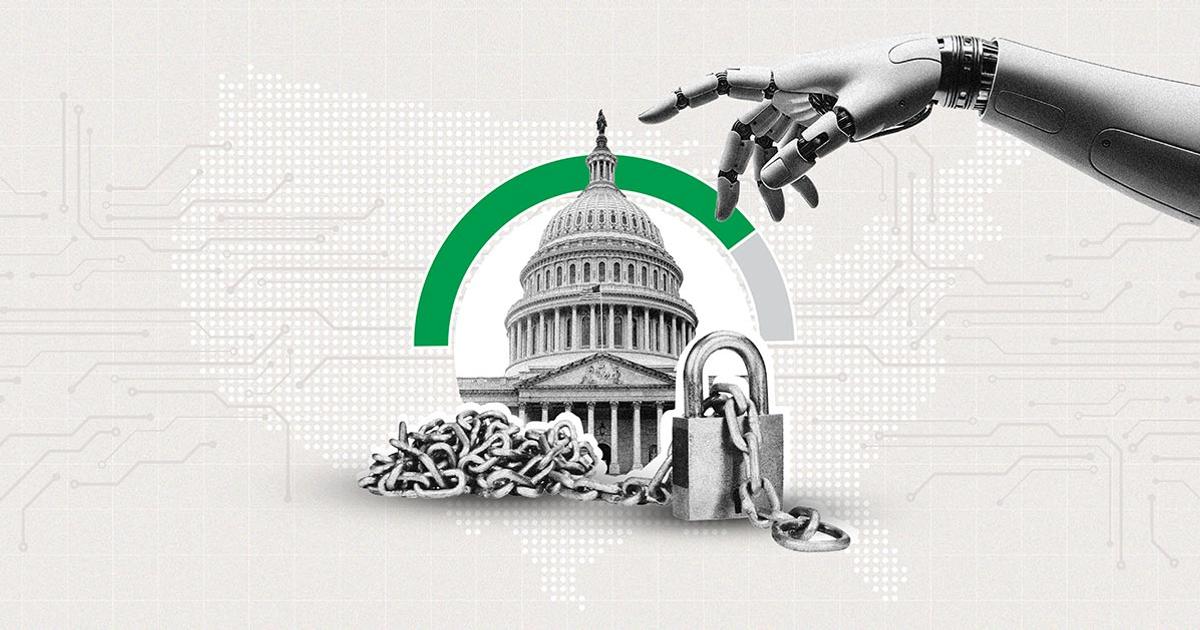AI Governance: What Americans Think
The Call for Safety in AI Development
In a rapidly evolving technological landscape, artificial intelligence (AI) stands out as a game-changer. However, as Americans become more aware of AI’s potential impacts, a significant trend is emerging: a strong desire for the government to establish rules for AI safety and data security. A recent Gallup survey highlights that 80% of U.S. adults believe prioritizing safety regulations over quick development is paramount, despite the competitive global landscape.
Perspectives on AI Speed vs. Safety
Interestingly, only 9% of respondents advocate for accelerating AI development at the expense of safety regulations. Meanwhile, 11% remain unsure about the issue, indicating a general consensus on the importance of safety. This preference for slow but safe development transcends political affiliations as 88% of Democrats and 79% of Republicans and independents resonate with the prioritization of rules governing AI.
Global Competition and National Confidence
As the competition to harness advanced AI capabilities intensifies globally, 85% of Americans recognize that a race is already underway. Despite the urgency, a concerning number of citizens—22%—feel the U.S. is lagging behind other nations in its AI endeavors, while only 12% believe the nation is advancing.
This prevailing sentiment reflects a broader unease about America’s position in AI development. A paradox arises: while there is an eagerness for progress, there is also a wariness about the implications of rapid advancements. This apprehension is mirrored by the public’s general skepticism towards AI technology, with only 2% expressing full trust in AI’s impartiality.
Trust Levels and Their Implications
When trust in AI is examined, the statistics are telling. Only 29% of adults trust AI “somewhat,” while a significant portion—60%—express some level of distrust. This skepticism is particularly prevalent among those who favor maintaining stringent safety regulations, as only 30% of them trust AI compared to 56% of those who advocate for rapid development.
This lack of trust has tangible implications for AI adoption. It seems evident that improvements in public trust could be pivotal for broader acceptance and integration of AI in various sectors.
Shared Governance and Collaborative Standards
Interestingly, the survey reveals that Americans are not only committed to safety and security but also to shared governance in the AI domain. An overwhelming 97% agree that AI should be subject to rules and regulations. However, opinions diverge on who should be responsible for creating these regulations.
More than half of the respondents (54%) feel that the U.S. government should be responsible for creating regulations, while 53% propose that industry players collaborate to design shared rules. The idea that each company should establish its own set of rules garnered only 16% support, highlighting a clear preference for both government oversight and industry cooperation.
Advocacy for Independent Testing
The desire for shared governance extends to the importance of independent testing for AI systems. A substantial 72% of respondents believe that safety tests and evaluations should be conducted by independent experts, overshadowing the 48% who suggest government oversight and the 37% who believe each company should bear this responsibility.
This inclination for independent evaluation points towards a collective understanding that robust safety measures are essential in ensuring the reliability and trustworthiness of AI technologies before their public deployment.
Multilateral Approaches to AI Development
When it comes to the methods of advancing AI technology, Americans lean towards a cooperative approach. A notable 42% prefer the U.S. to collaborate with a broad coalition of allies and friendly nations, as opposed to the 19% who advocate for working with a smaller group of close allies or the 14% who support an independent approach.
This preference for multilateralism is fairly bipartisan, though Democrats significantly prefer collaboration with a larger coalition (58%) compared to Republicans (30%). Nonetheless, the overall inclination towards cooperation underscores a collective recognition of the shared stakes involved in AI advancements.
What the Future Holds for AI Governance
As the debate surrounding AI governance evolves, it is clear that public sentiment is leaning heavily in favor of prioritizing safety and collaboration over speed and competition. The Gallup survey findings reveal a nuanced understanding among Americans regarding the complexities of AI development and regulation. While there’s an undeniable enthusiasm for advancements in technology, the overarching desire for safety and ethical considerations remains a powerful driving force in shaping the future of AI governance.
As society continues to navigate this uncharted territory, the balance between innovation and regulation will undoubtedly be a focal point for policymakers, industry leaders, and the public alike.



